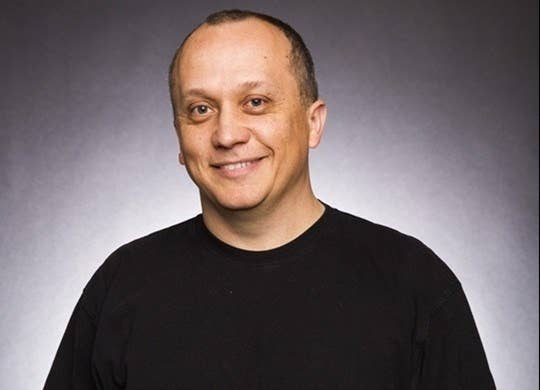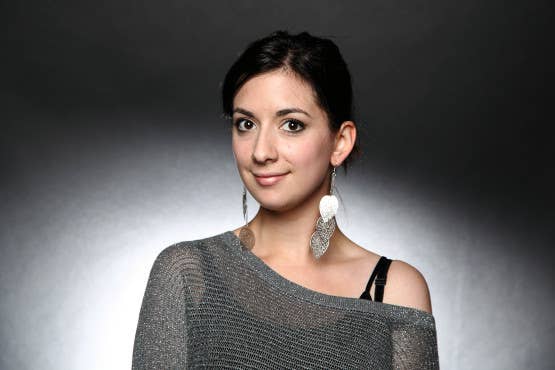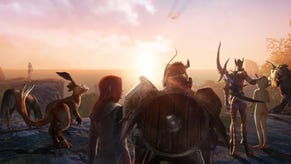Riot Games exec Greg Street promises change to sexist culture
Meanwhile, ex-Riot artist and Jinx creator Katie De Sousa reflects on her own experiences, is confident studio can turn things around
A leading member of League of Legends developer Riot Games has shared details on how the company is trying to improve its internal culture, following accusations of sexist behaviour among employees.
The firm has already stressed it has a "zero tolerance policy" for such behaviour following an extensive exposé by Kotaku. Now Greg Street, head of creative development, has offered his own thoughts on the matter.
Answering a question about how he plans to "fix the broken, sexist culture at Riot" via his Tumblr, Street said he is listening more to ensure the women on his team, and in other departments, "feel like we hear them, we really understand their point of view, and we understand what they want changed."

He continues: "Some of the episodes mentioned that qualify as harassment or worse are horrible and inexcusable, and I would not allow them on my teams. I have fired people for such behavior at Riot and also at Blizzard. It's a dissatisfying ending to the story because you typically don't announce why someone is being terminated, and that is particularly true if there is a victim involved that you want to protect. As a leader at Riot, I have to make sure that the rest of the organization doesn't tolerate it either.
"I am personally more worried about the chilling effect that can happen if women feel like their ideas are not being heard, or they don't receive fair pay or opportunities for promotion. I take those problems really seriously and I would like to think that women who have been on my teams feel like they have been recognized for their accomplishments. But it would be more meaningful to ask the women."
Street observes that, historically, Riot has focused on hiring "active game players", which inevitably generates a male-dominated pool of job seekers. He reports the developer is now "trying to explore new avenues of how we source potential applicants" and believes there are "opportunities there to broaden the kind of folks we interview."
"Look, this is an industry (gaming specifically, but tech at large) that has a pretty terrible track record for women and minorities," he concludes. "It has been a problem everywhere I have worked, and sadly Riot is not immune either.
"Riot talks a lot more about culture than anywhere I have worked, so perhaps that makes it doubly disappointing that we haven't been able to deliver. Industry-wide, if not culturally-wide, these issues are not easy to fix, but they are important to fix, and that gives me hope that we won't give up."
Meanwhile, a former Riot artist has shared her own experiences of working at the studio. Katie De Sousa spent five years at the firm and was the creator of League of Legends' hero Jinx. She is currently the art director at Phoenix Labs working on upcoming free-to-play RPG Dauntless.

Her own Tumblr post is lengthy but well worth a read as she recounts the various forms of sexism and intimidation she experienced during the early stage of her career, adding that no matter how many women share their stories, it continues to be a challenge to truly convey how oppressive such a culture can be.
"How do you talk about 5 years of awful, painful, mosquito bites so that people who have never been bitten can understand?" she writes.
She recounts a company party at a nightclub where a drunk and older senior leader cornered her and began "asking me questions and coming uncomfortably close", before aggressively demanding "Do you know who I am?"
De Sousa writes: "I'm sure a lot of women can relate to feeling completely safe one moment, and then the next moment something happens and you experience the crushing realization that you're still just prey. That's what Riot felt like from then on. It felt like I was a deer trying to thrive while constantly surrounded by wolves. This feeling was validated over and over again. I got pretty good at pretending to be a wolf though."
She goes on to write how, despite adopting a "faux-alpha personality" to better fit in, she still experienced inappropriate comments (some of which the men believed to be compliments) and was even told by a male colleague that "women don't fit in a male heirarchy".
When she attempted to vent her grievances to some coworkers, a lead took her aside and warned that it appeared like she was spreading rumours.
"This is what happens when you speak up, even a little, as a woman," she says. "You're not raising awareness, you're disturbing the peace."
She doesn't note that several of her colleagues, particularly her art directors, were supportive and trusting. These peers took her seriously, acknowledged her good work, and even confront men that "treated me like a lesser human."
"I can't, however, ignore the fact that striving for [my] achievements was harder as a woman than if I was a man," De Sousa writes. "I feel like the road would have been easier if I wasn't interrupted, ignored, or spoken over much more than my peers. If men didn't cut me off mid-sentence in meetings to mock the way I said "Sorry". I was on a team full of people from diverse backgrounds, I didn't see any of them get their thoughts kicked aside for the sake of entertainment the way that mine were."
Despite her experiences at the company, she remains "optimistic about Riot's future" and believes the studio can eradicate this toxic culture.
"When people argue "oh the games industry is like this, it's not just Riot" yes, that is true, and we should hold them all to higher standards," she says. "Riot is one of the most forward thinking studios, and one that I believe is incredibly capable of change. The resources and talent they have can move mountains, if they're collectively willing to set aside their egos, to listen, learn, and make the sacrifices necessary to be better.
"This is a difficult task, and I don't envy the work ahead to them. That studio is the size of a small town, and it's going to take a lot of work to retroactively dig out the weeds that have been ignored and allowed to develop roots, but when has Riot ever shied away from difficult tasks?"








